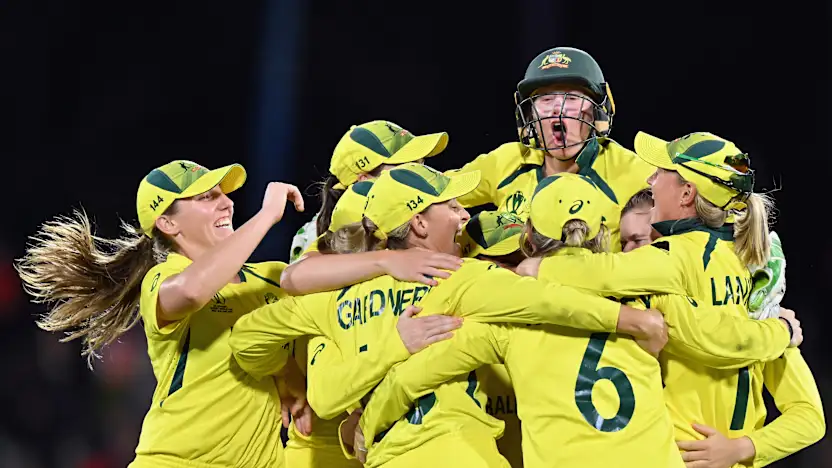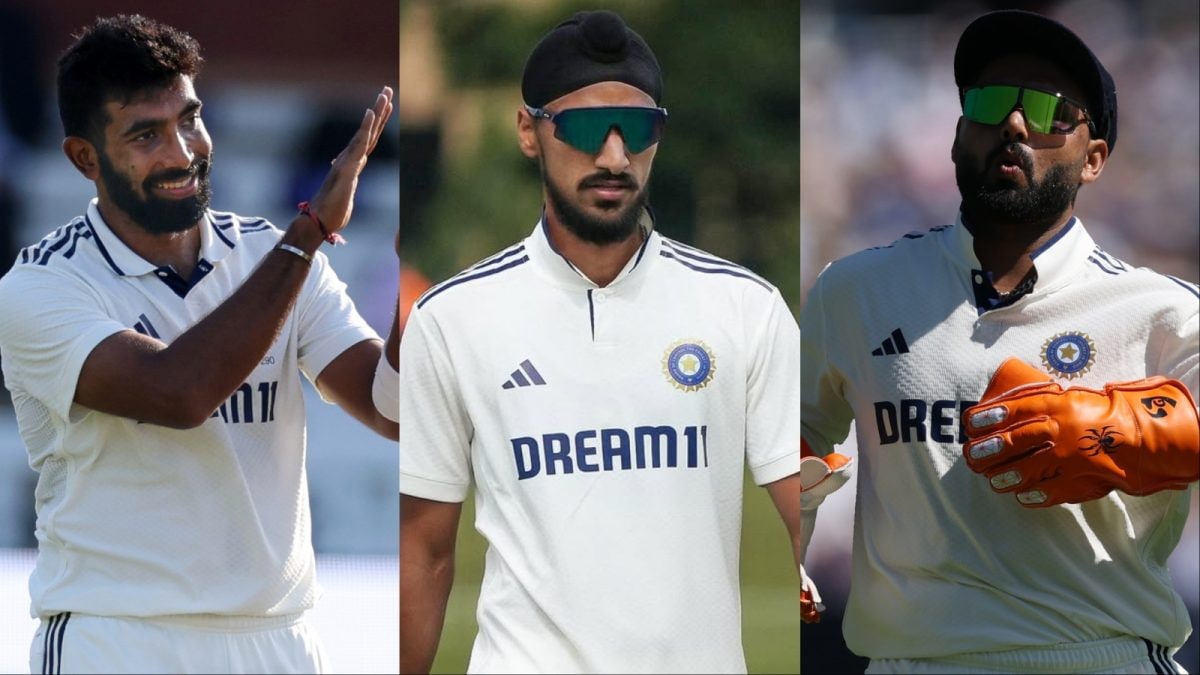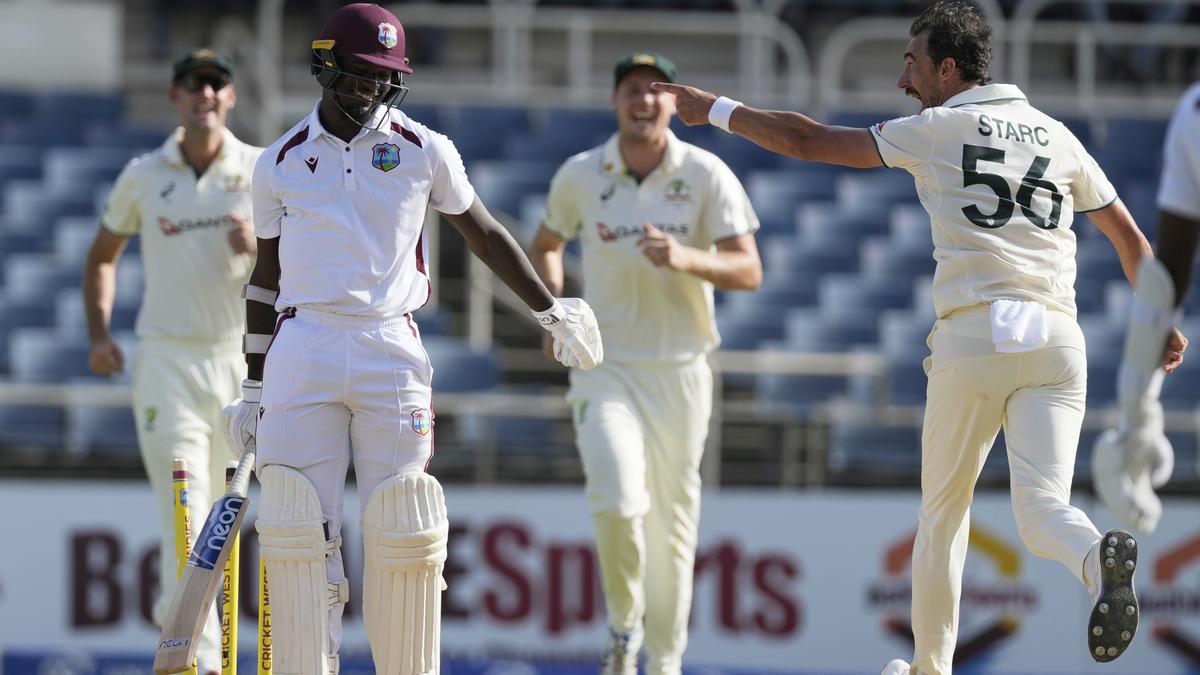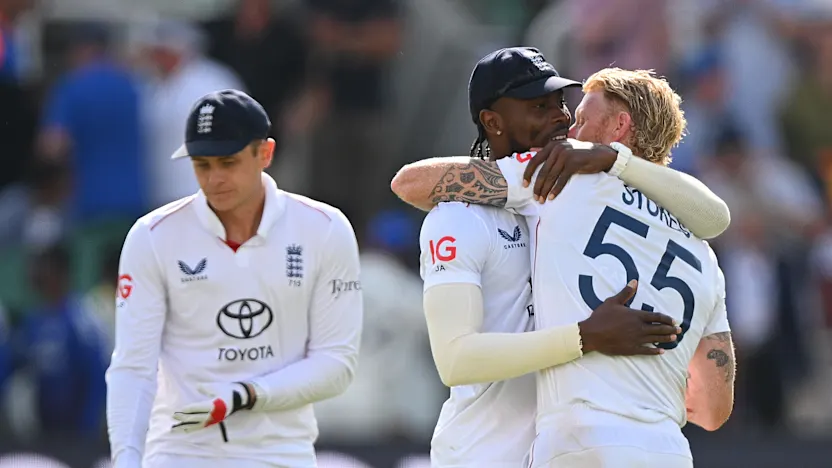Starc's fastest five-wicket haul and a record-breaking Boland hat-trick: The records that fell on day three
Records tumbled as Australia produced a truly remarkable bowling performance to defeat the West Indies by 176 runs and clean sweep the Frank Worrell Trophy 3-0.The West Indies' team score of 27 flirted with the worst of all time, Mitchell Starc took his quickfire strike bowling to a whole new stratosphere, and Scott Boland's hat-trick made him statistically the best bowler since World War I.Here are the records that fell (and a couple that didn't) on a scarcely believable third and final day of the pink-ball Test in Jamaica.Starc's record-equalling startMitchell Starc is renowned for his knack of picking up early wickets, but even by his standards, his first over on day three was something extraordinary.He had John Campbell caught behind with the very first delivery of the innings, Kevlon Anderson dead to rights and plumb in front with the fifth, and Brandon King clean bowled with the sixth.Starc had become just the second player in the history of Test match cricket to take three wickets in the first over of an innings, after India's Irfan Pathan in 2006, who took a hat-trick in the opening over of his side's loss to Pakistan.The triple breakthrough from Starc meant that his career tally of first-over wickets rose to 23, or 5.7 per cent of his overall tally of 402.Starc takes 400th in his 100thThat opening-over onslaught meant Starc was in a position to become the first bowler to reach 400 wickets with a hat-trick delivery.That didn't happen, but it only took him six more balls to reach the milestone.Returning West Indies opener Mikyle Louis was trapped in front and Starc held the pink ball to the sky to celebrate becoming just the fourth Australian bowler to take 400 Test match wickets after Shane Warne, Glenn McGrath and Nathan Lyon.He is also now the second fast bowler after McGrath to play 100 Tests for Australia.Starc's quickfire fiveOnly two balls later, the magenta monster was aloft once more.Starc had just trapped another hapless West Indian LBW, this time Shai Hope, to complete the fastest five-wicket haul in Test match history.Starc dismissed Hope to claim the fastest five-wicket haul in Test match history. (AP: Ricardo Mazalan)15 deliveries was all it took for Starc to remove half of the West Indies' wickets on day three, bettering the previous record by four balls.That was held jointly by Ernie Toshack, who achieved the feat for Australia in 1947, Stuart Broad, who was on his way to figures of 8-15 during the 2015 Ashes, and Scott Boland, who equalled the record during the 2021/22 battle for the urn.Starc extends pink-ball superiorityStarc began the third Test as the undisputed king of the pink ball, with 74 day-night wickets at an average of 18.And after completing figures of 6-9 in Kingston — his best Test match figures overall — his superiority was only underlined.Starc's tally of 81 pink-ball wickets in 13 Tests is over 30 more than his nearest rival in the format, Nathan Lyon, who was dropped for this contest in favour of our next history-maker.Boland joins elite company with hat-trickScott Boland had an incredible re-introduction to the Test arena. He picked up three wickets in the first innings in Kingston and would have been licking his lips when he was introduced into the attack with the West Indies already six down in the second.After a range-finding first over, Boland struck with the first three balls of his second to claim the 60th, 61st and 62nd wickets of his career.He had Justin Greaves caught at slip, Shamar Joseph trapped LBW and Jomel Warrican clean bowled to become the 10th Australian to take a Test match hat-trick.He's the first Aussie to take a Test trifecta since Rene Farrell in 2011 and first Australian man to do so since Peter Siddle's famous birthday special a year prior.With those dismissals, Boland narrowed his career bowling average to just 16.53, the sixth-lowest in the history of Test cricket.Remarkably, that average is the best, not just of bowlers to have played in the 21st century, but of any bowler to have played after World War I.West Indies one run short of unwanted historyThe West Indies were one run short of equalling the lowest-ever Test score. (AP: Ricardo Mazalan)With the Boland hat-trick taking the score from 6-26 to 9-26, another unwanted milestone was in sight for the West Indies.Although the hosts had already escaped the outright lowest score in Test match history, they needed one more run to ensure they didn't tie it.And they got it. Just.Sam Konstas — who had already grassed two catches in a horror hour in the field — let one through him at gully and the batters scampered through for a single.Mitchell Starc bowled Jayden Seales to ensure that was all they would get, and the West Indies were all out for 27, the second-lowest score in Test match history, nestled between New Zealand's 26 in 1955 and two South African 30s in 1924 and 1896.It was, however, comfortably the worst total in West Indies history, eclipsing their 47 (also at Sabina Park) against England in 2004.Quack, quack, quack, quack, quack, quack, quackThe West Indies seven second-dig ducks is the most ever recorded in a Test match innings.That means just four batters combined for the West Indies' team total of 27.Only earlier this month, England had equalled the previous record of six in its score of 407 against India.That innings was also the first time a team had registered five or more scores of zero alongside two 150s.




.jpg)







